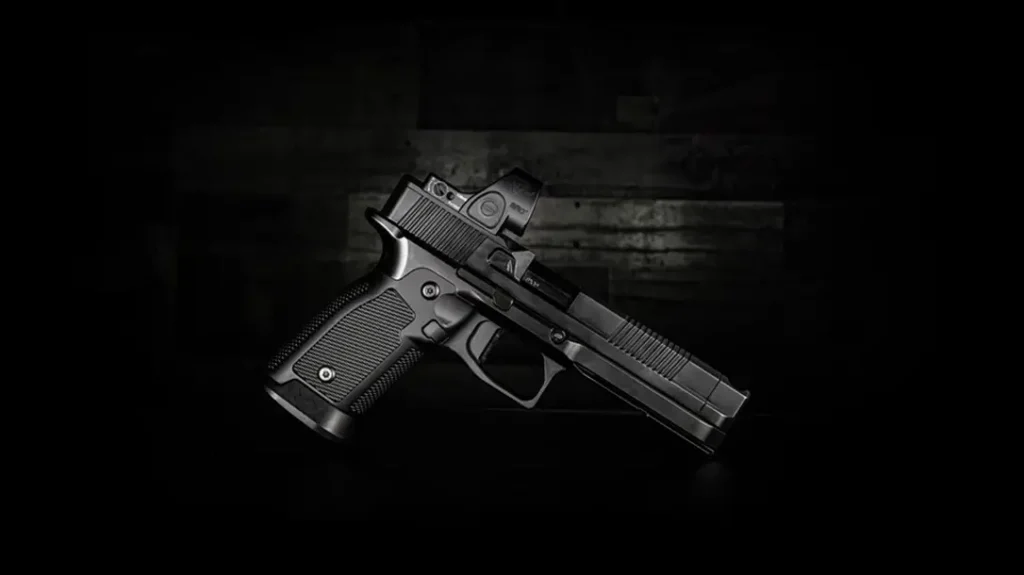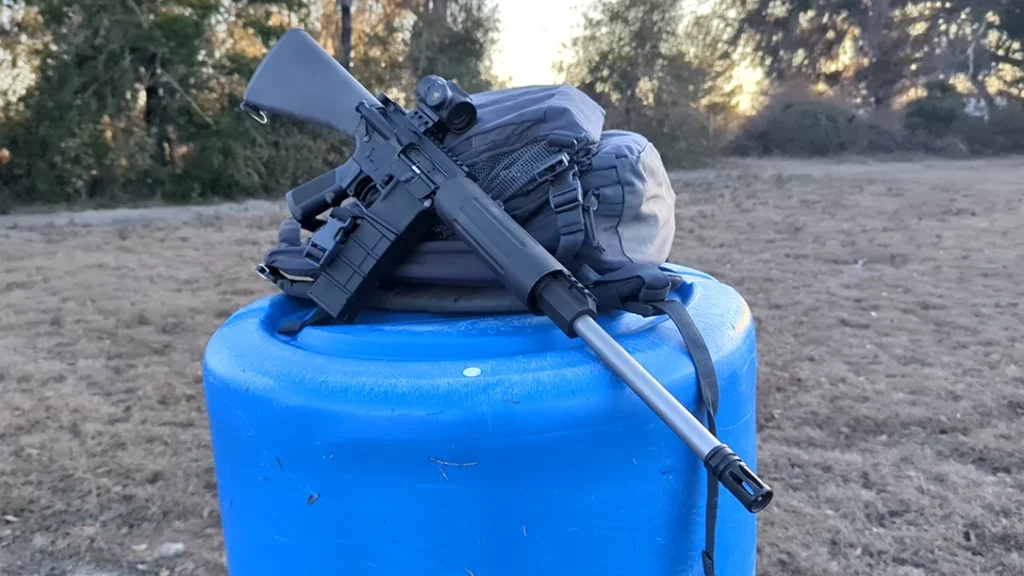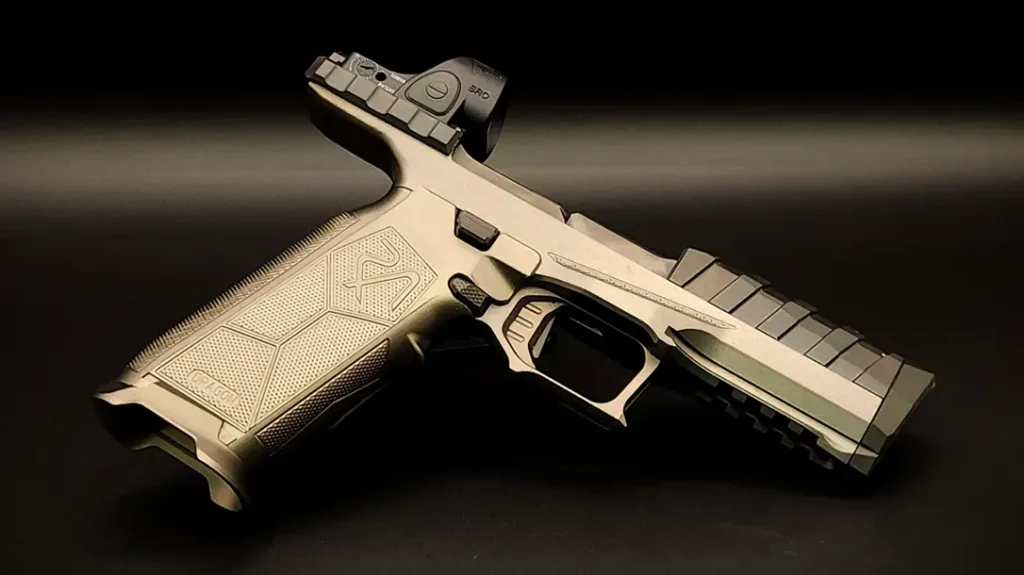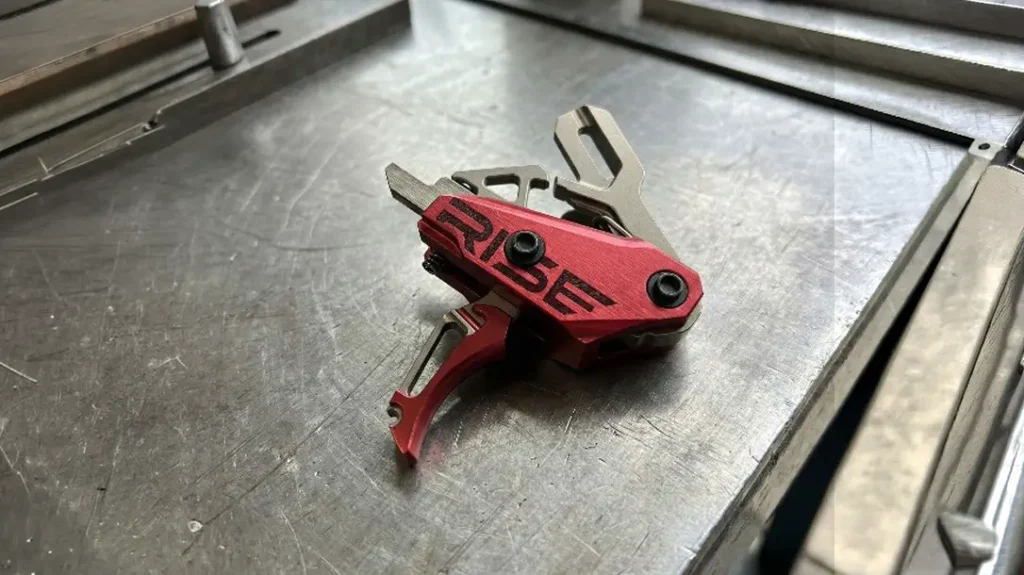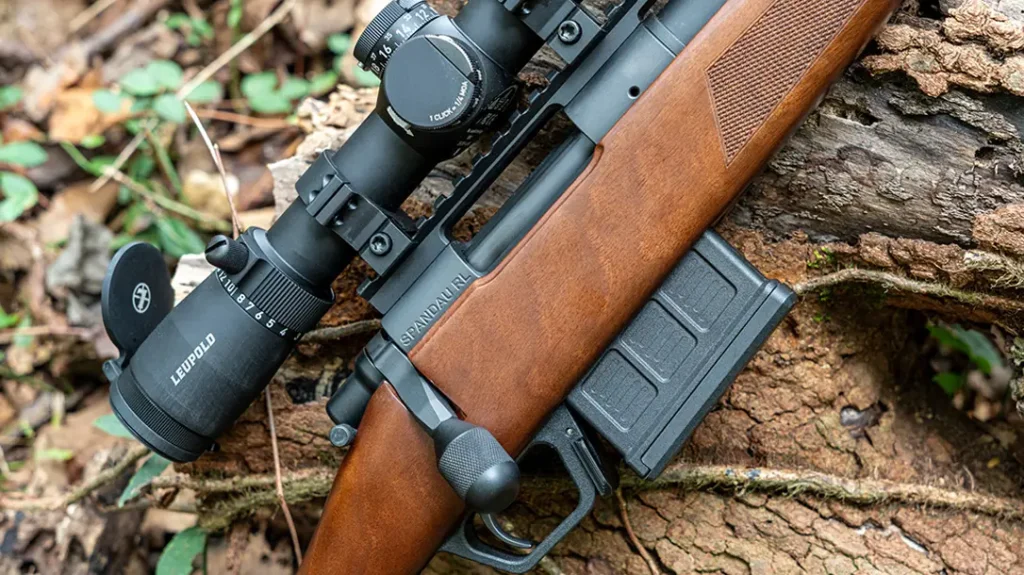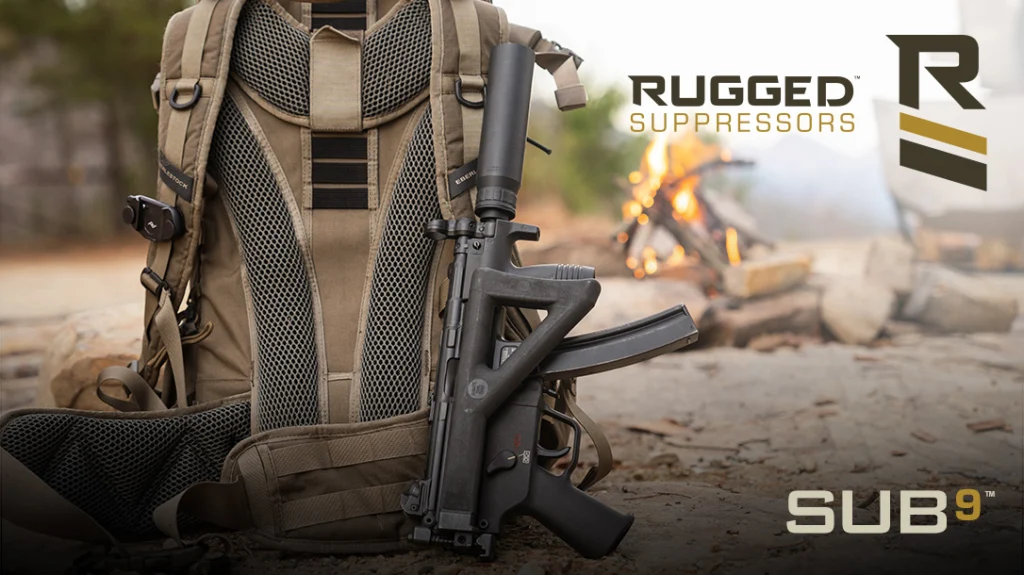SIG Sauer announced 2024 a celebration of the one of its most famous pistols: the SIG P226 40th Anniversary. Many of the innovative features introduced on the P226 family still prevail today, including on many other manufacturer’s weapons as well.
A great example of this is how SIG modified Browning’s locked breech short-recoil design. Instead of slots in the hood of the slide interacting with locking rings on top of the barrel, SIG utilized the forward edge of the chamber locking into the ejection port. This removed complex machining operations from the production process. De-cocking lever, automatic firing pin safety, pinned breechblock in the steel slide are other examples.
SIG P226 40th Anniversary
The SIG Sauer P226 derives from the P220. P220 design work started in the late 1960s due to the Swiss wanting a less expensive service weapon in lieu of the P210. The P220 entered Swiss service in 1975. The P226 reflected SIG’s quest to generate an entry for the early 1980’s US XM9 Joint Service Pistol Trials conducted to find a replacement to the M1911A1. SIG modified the P220 to accept double-column magazines, giving rise to the P226. When the dust settled after years of testing and evaluation, only the Beretta 92F submission and SIG P226 satisfactorily completed the trials.
Advertisement — Continue Reading Below
As most readers already know, the P226 was not chosen to replace the venerable M1911A1. The P226 test performance impressed though, gaining the attention of various military units, many with elite status, and law enforcement agencies in the US and around the world. The US Navy SEALs preeminent on this list. Early on it was evident that the P226’s reliability, accuracy, safety, and capacity set it apart from its handgun peers.
The SEALs formally adopted the P226 in 1989 with it being designated the MK25. This started SIG’s relationship with the US military that subsequently generated so many partnership across the spectrum of handgun, rifle, suppressor, belt-fed machine gun, ammunition, SMG and so on. All cannot be listed; however, examples are the M17/18 pistol, Next Generation Squad Weapon, MCX Virtus, Tango6 optic, SLX suppressor, etc.
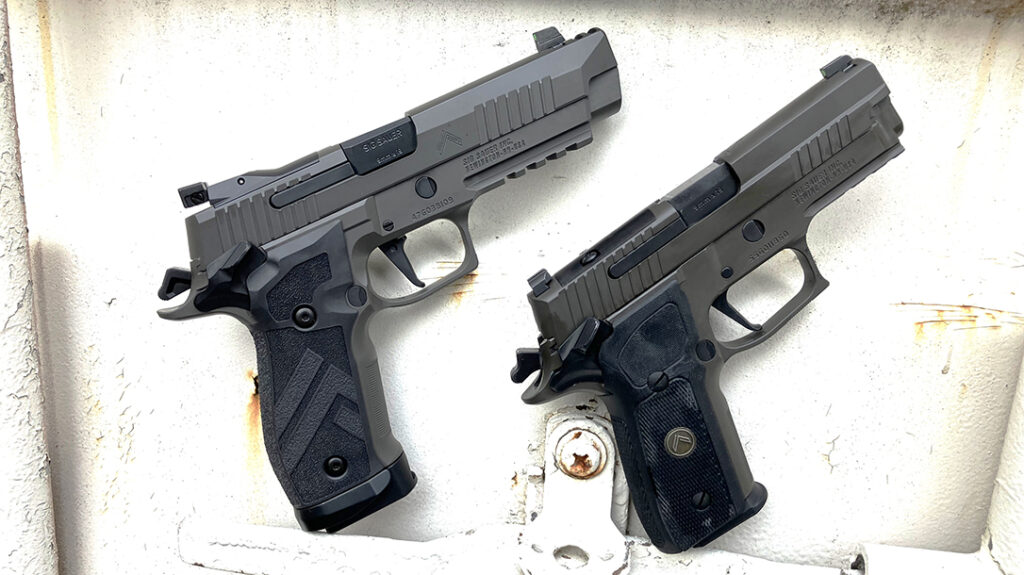
Advertisement — Continue Reading Below
P226 Variants
SIG owns an enviable reputation for not resting on its laurels. The numerous P226 models great example of this. SIG has no issue introducing new variants of already successful weapons in the quest to scratch everyone’s “itch.” The company combines/adds features based on wish list comments emitting from competition, tactical, LE, military, and personal defense customers. You don’t have to reinvent the wheel to have a successful new model. SIG currently lists 14 P226/9 models–DA/SA, SAO, threaded barrels, red dot optics, compensated, compact, target, and more.
Unlike other manufactures who often forget about their civilian customers after getting a taste of military contracts, SIG’s dynamic leadership team keeps the hammer down with both current production and offering new items based on feedback from its customers. Even with their preeminent position, SIG has no problem expanding their product line by offering weapons that many considered unobtainable. SIG builds the P226 XFIVE here in the US via SIG Custom Works shop. Previous P226 XFIVE’s were Teutonic offerings from the German-based SIG MasterShop. SIG discontinued these in 2012.

Advertisement — Continue Reading Below
Competition Excellence
The target audience, pun intended, for the P226 XFIVE is anyone wanting a tack driving long-slide P226 variant. XFIVE features all support this role, inclluding extended railed dust cover, all-steel construction versus more typical P226 aluminum frame, 5-inch bull barrel, Dawson-style adjustable rear sight plate, fiber-optic front sight, and most significantly, a fully-adjustable AX3 single-action only (SAO) trigger. Ambidextrous, manual safeties are present on the P226 XFIVE in lieu of de-cocking lever usually found on the DA/SA P226. A low-profile alloy magwell is seamlessly fitted to bottom of the grip that the three, 20-round magazines with extended aluminum basepads that arrive with the XFIVE fit nicely aesthetically and functionally.
SIG realized that a more compact P226 design would benefit their end users. Thus, the P229 was born. Someone who is a practitioner of concealed carry quickly realizes that length, grip size, overall weight, and width of a pistol are the key defining parameters for discrete carry handguns. The P226’s history and track record of proven performance on the battlefield and street grant the P229 instant credibility.
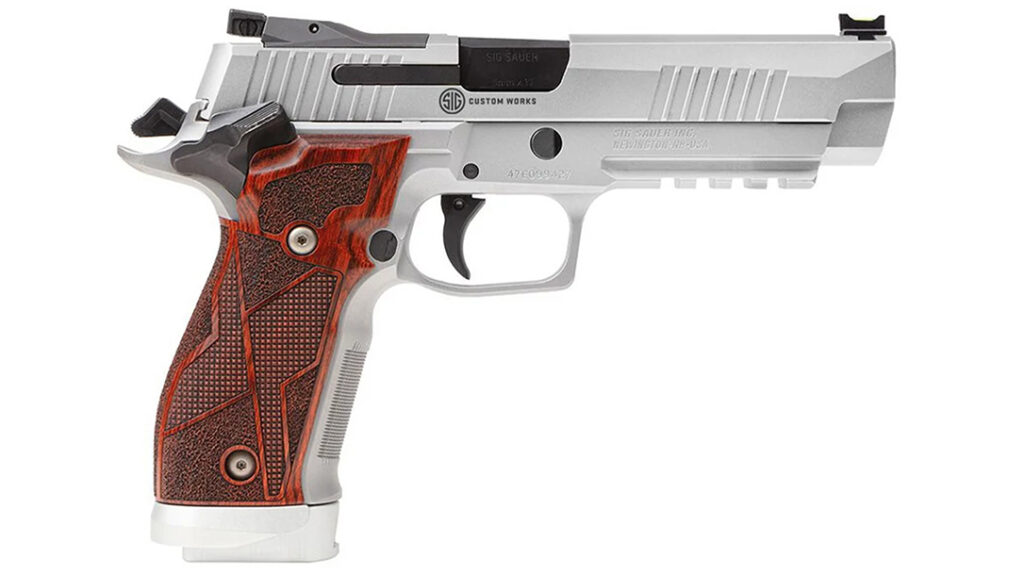
Advertisement — Continue Reading Below
Special Collaborations
Even with their preeminent position, SIG has no problem teaming up with other firms to create unique enhanced versions of existing traditional SIG products. The P226 Zev collaboration is an excellent example of this. The P226 Zev is more than just distinctive Zev aesthetics and texturing found on Nitron coated stainless slide, hard coat anodized allow frame with undercut trigger guard and extended beavertail, Zev-pattern hexagonal textured Hogue G10 grips, and threaded dimple pattern threaded barrel. Zev and SIG created a P226 that pushes the envelope with SAO trigger and ROMEO1 PRO reflex optic standard.
The examples given are offered to show the flexibility of the P226 beyond the already solid performing standard issue P226 that serves with the SEALs. The key point with the SIG Sauer P226 is that it is eminently adaptable to individual, department, or unit needs. Everything from the homeowner with a light/laser combo to an elite military team with night vision and infrared target designator and suppressor mounted will find the SIG Sauer P226 worthy of consideration.
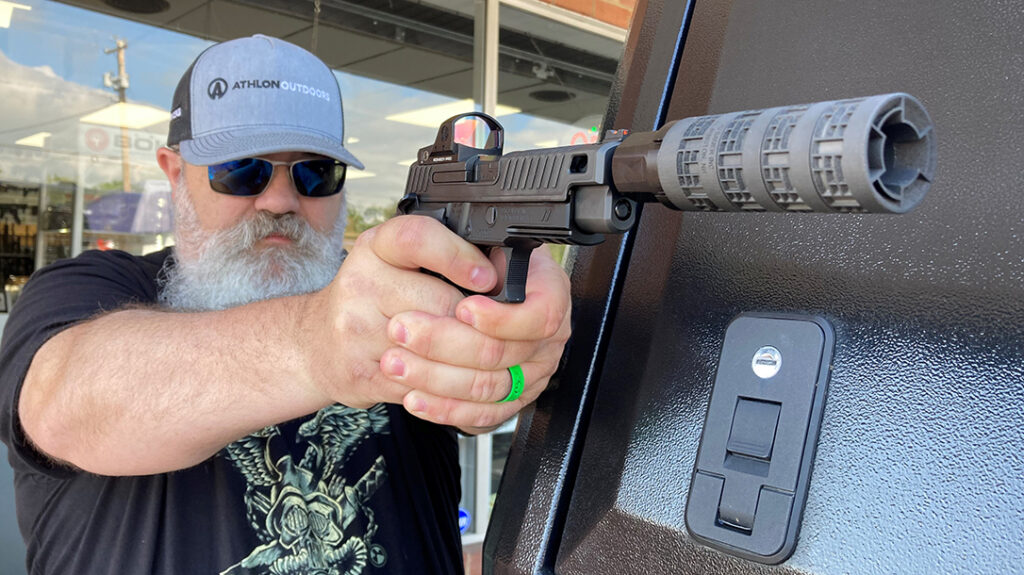
Advertisement — Continue Reading Below
The SIG Sauer P226 arrives ready to go right out of the box. Kudos to SIG for including the right features for maximizing performance without turning it into a finicky or fussy weapon. The P226 is a potent package in any of its possible forms due to its accuracy, reliability, and capacity—all of this combines into increased lethality. I am sure the SIG P226 will be around to celebrate its 60th Anniversary in 2046.
For more info, visit sigsauer.com.

